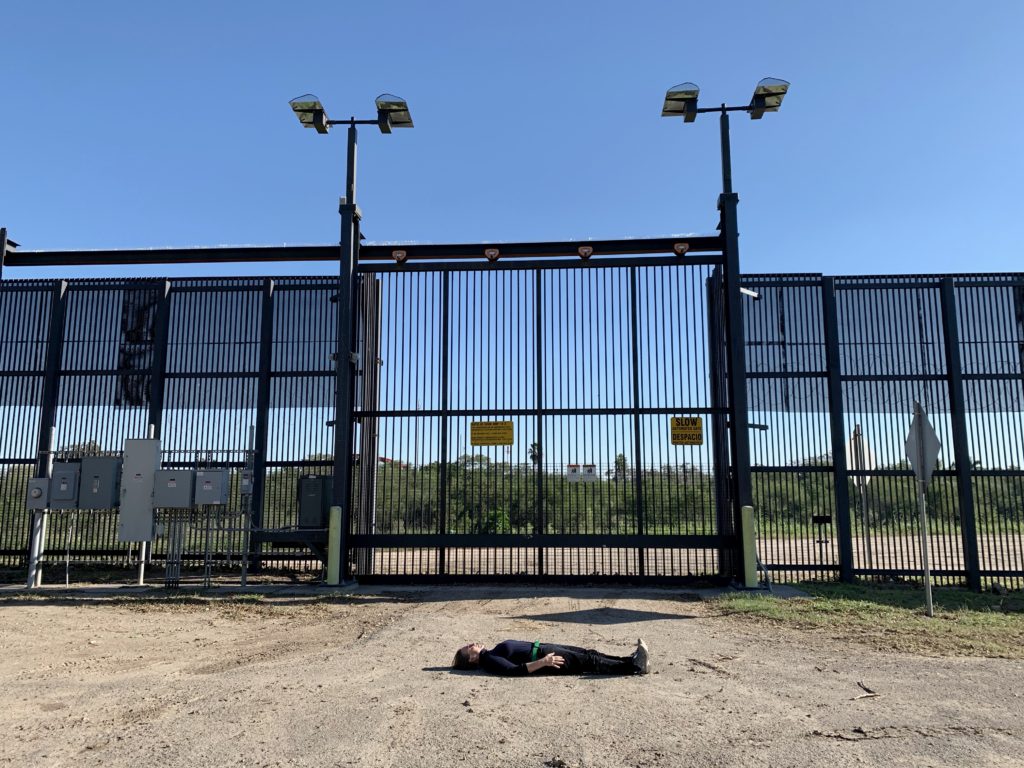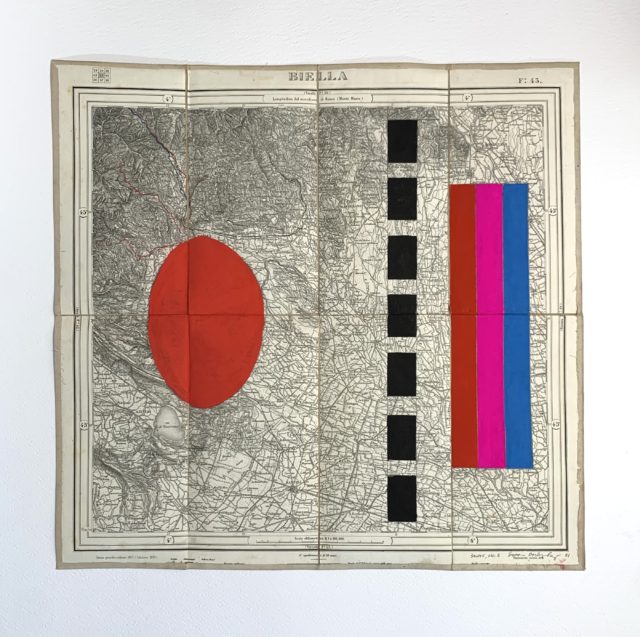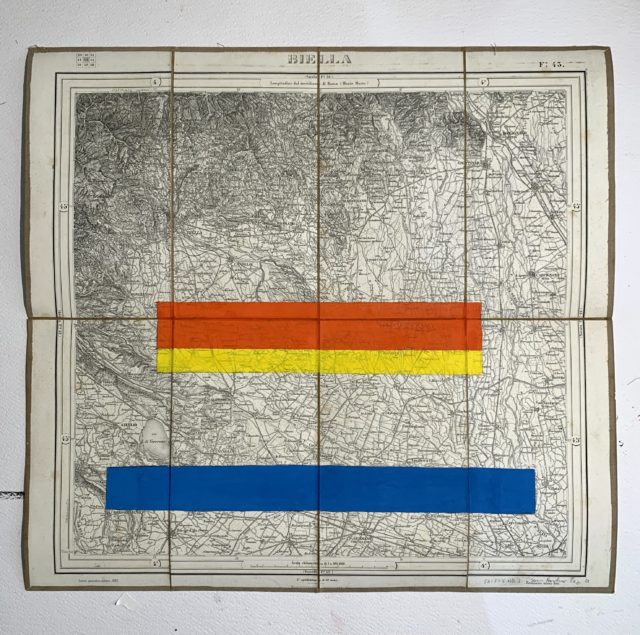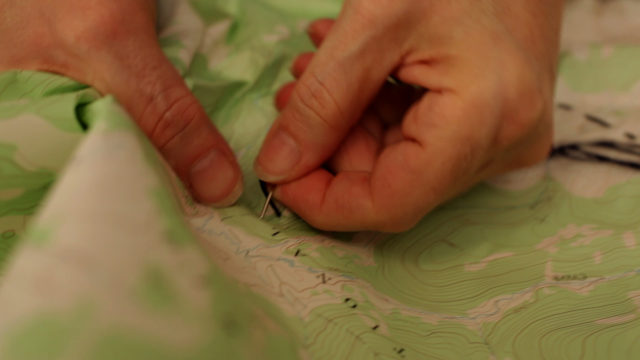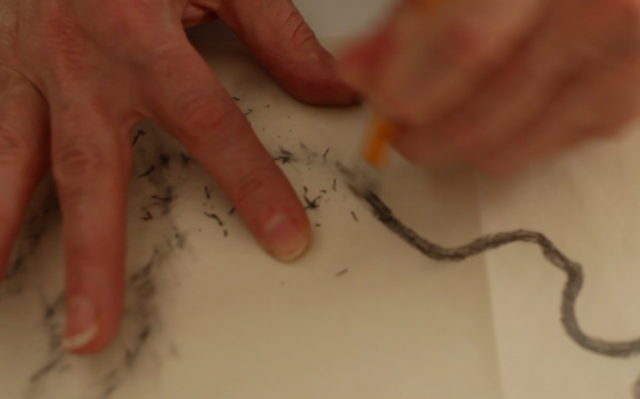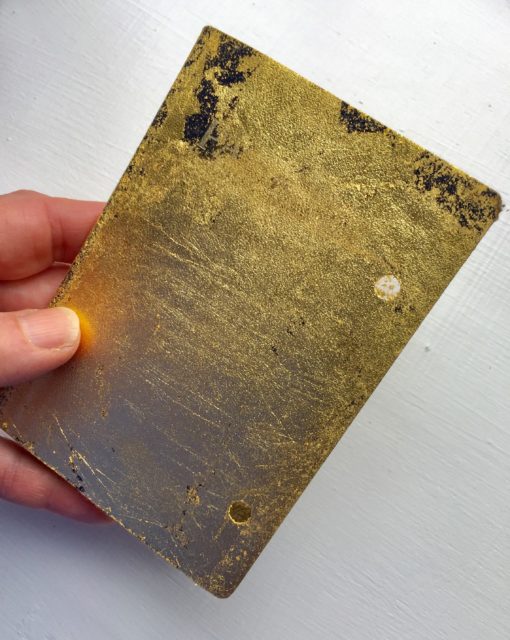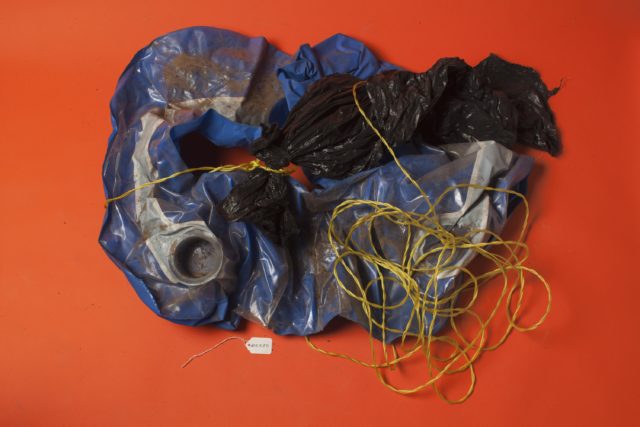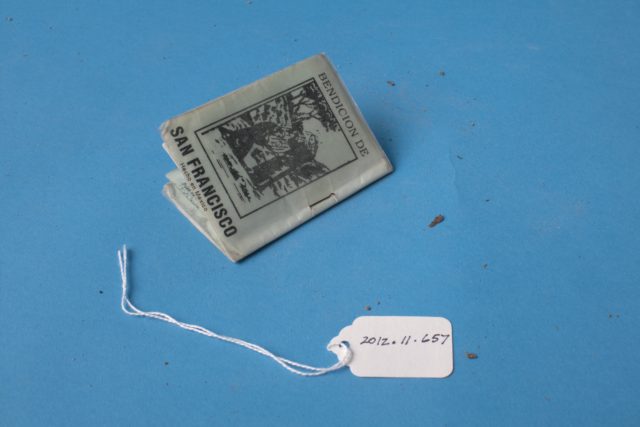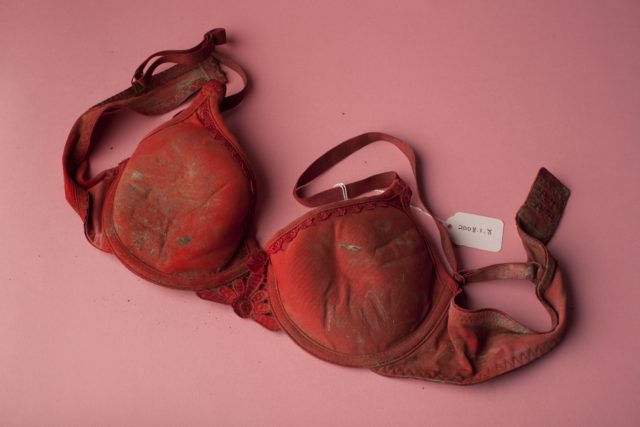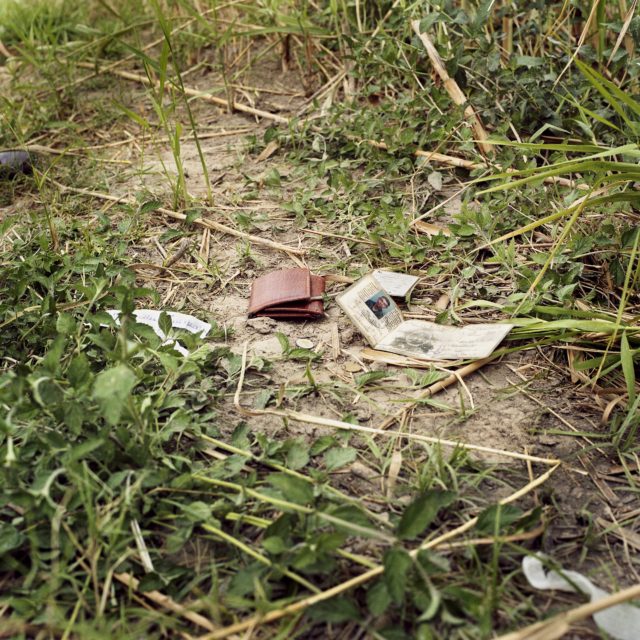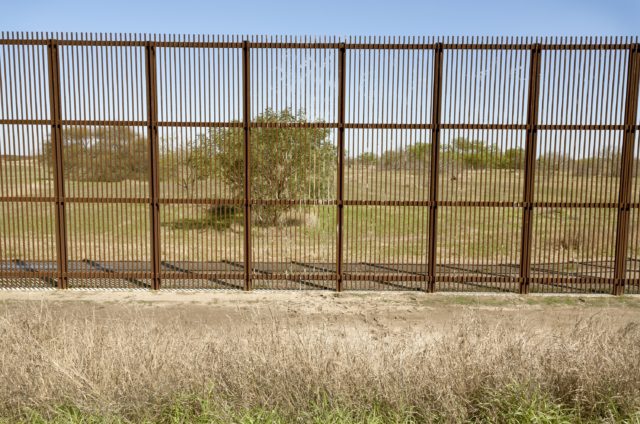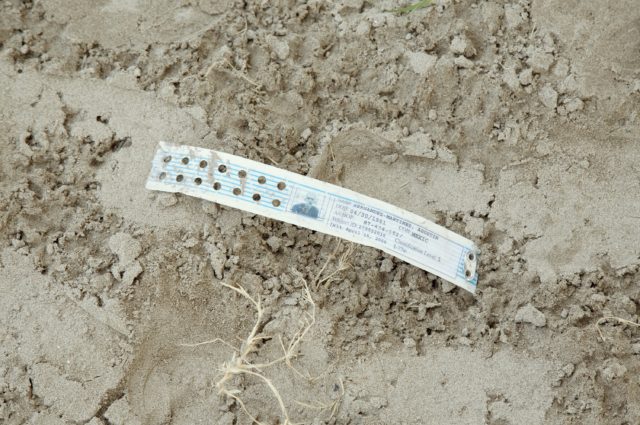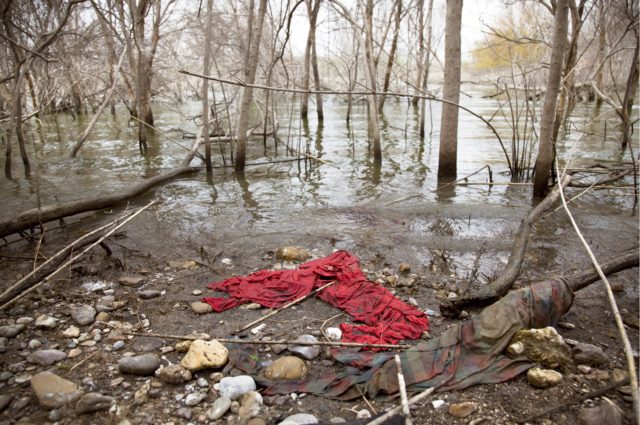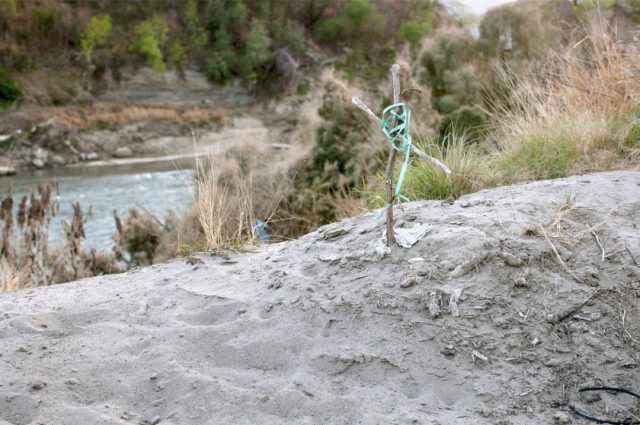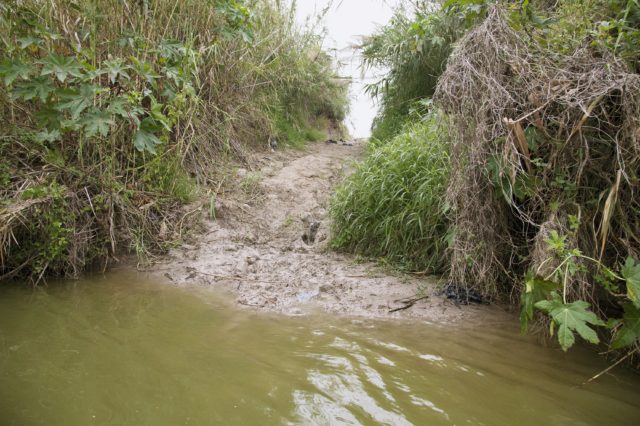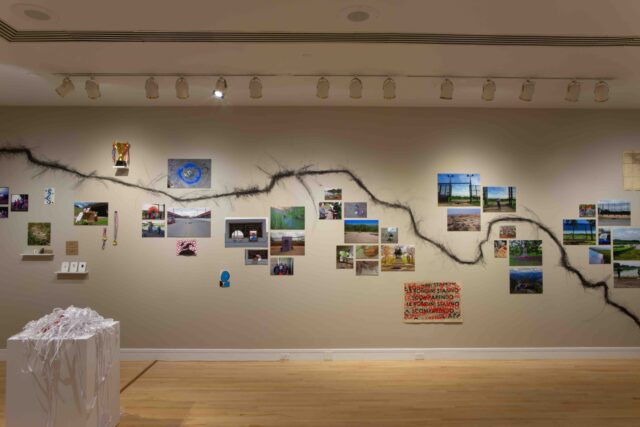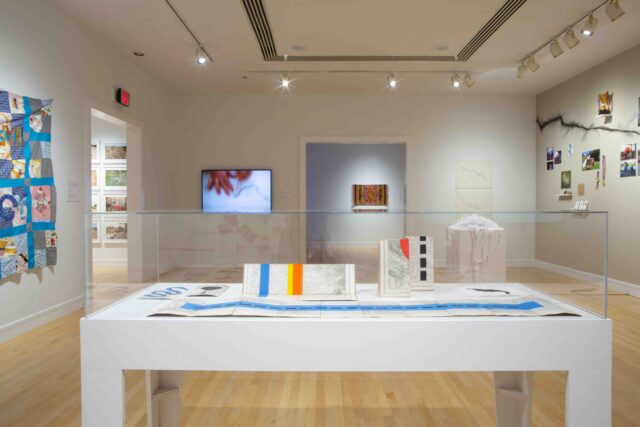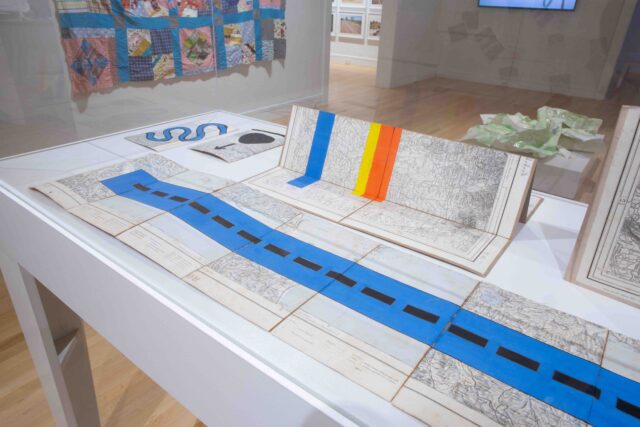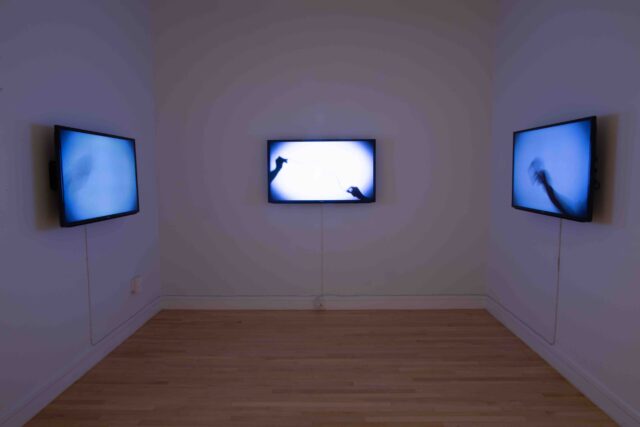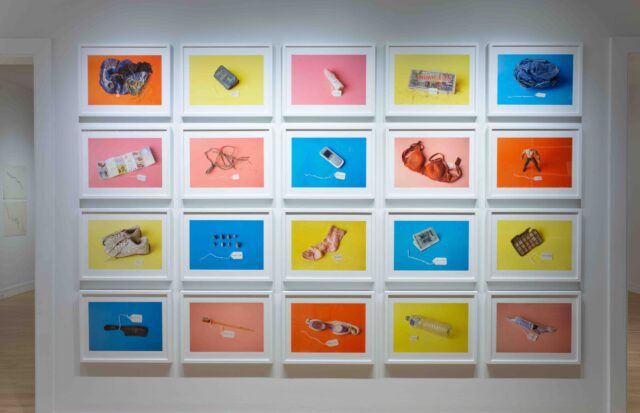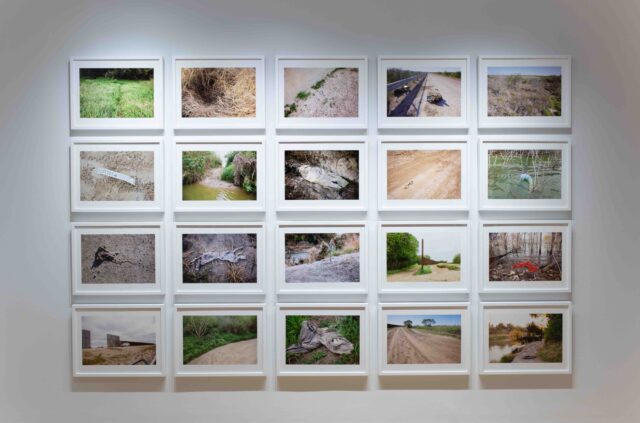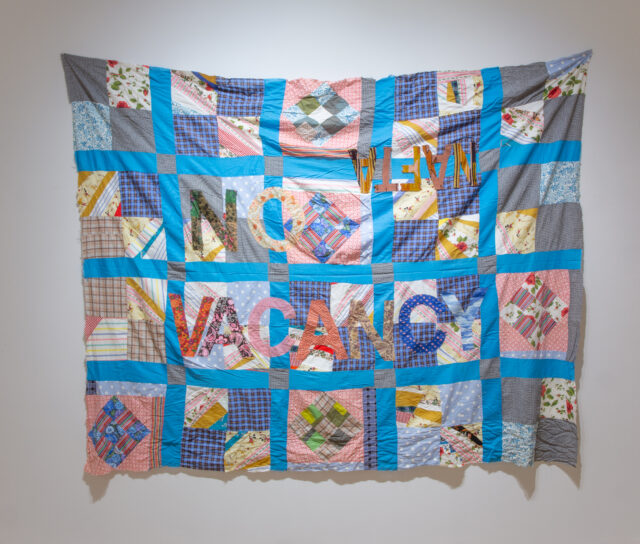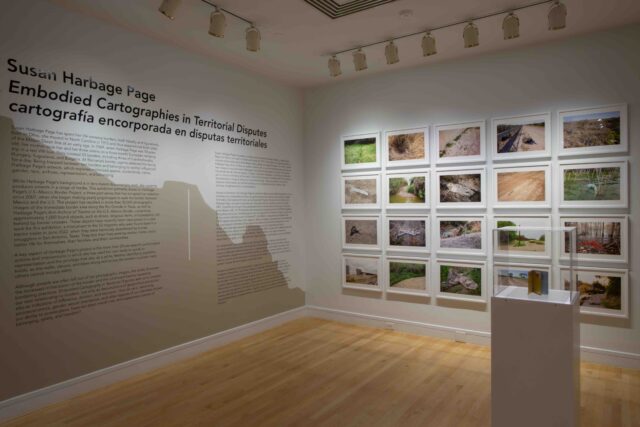Susan Harbage Page
Embodied Cartography in Territorial Disputes
Van Every Gallery
On View: October 12, 2022— December 07, 2022
Opening Reception: October 12, 2022, 6:00 pm— 7:30 pm
Related Programs & Events
Susan Harbage Page: Exhibition Reception
October 12, 2022, 6:00 pm—7:30 pm
Collaborative Wreathmaking with Susan Harbage Page
October 13, 2022, 2:00 pm—4:00 pm
Susan Harbage Page has spent her life crossing borders, both literally and figuratively. Born in Ohio, she moved to North Carolina and thus experienced both sides of the Mason-Dixon line at an early age. In 1969, when Harbage Page was 10 years old, her mother took her and her three sisters on a three-month European camping trip in a red VW bus. The five women crossed 23 borders, including the Iron Curtain countries of Czechoslovakia, Hungary, Yugoslavia, and Bulgaria. At Romania’s border, agents detained the family for a day. Being trapped between two borders and belonging to neither influenced Harbage Page’s work which explores militarized spaces, borderlands, nation, gender, race, archives, representation, and belonging. While Harbage Page has a lens-based/documentary background, she currently works in photography, video, performance, and installation.
Harbage Page’s exhibition focuses primarily on her U.S.-Mexico Border Project, a three-part series that has held her attention for more than fifteen years. The project includes her Anti-Archive of Trauma on the U.S.-Mexico Border, comprised of approximately 1,000 found objects such as shoes, religious items, and passports left behind by border crossers. The project also includes more than 30,000 photographic images Harbage Page has taken of the immediate border area along the Rio Grande in Texas. Many of the images depict the paths that refugees walk; over time, her images have shown the increased militarization of the area. Lastly, Harbage Page has used her own body in more than fifteen site-specific actions and interventions in the Rio Grande Valley of Texas as a way of speaking to more personal conversations around representation and the privilege that Harbage Page, as a white academic holds, has as she walks, canoes, and bikes along and across the border – a place where many others cannot walk safely. The project illuminates a history of continuing trauma caused by bordering practices in the Rio Grande Valley. The focus on archives asks the viewer to consider how they shape our histories, whose narratives get included, and whose narratives get left out or abandoned.
Harbage Page holds a master’s degree in Photography from the San Francisco Art Institute (2004), a Master’s Degree in Music from Michigan State University (1983), and a certificate of knowledge of the Italian Language, from the Universitá Per Stranieri, Perugia, Italy (1984). Her master’s degree in Saxophone Performance from Michigan State University and engagement with the New Music Ensemble at MSU where she studied the work of John Cage and his theories on chance, indeterminacy, silence, and Buddhism, influence her performative works such as La Ragnatella Rossa Performance (2015), Sewn Border (2014), Erased Border (2015), Erasing the Border Performance (2018-Present), and most recently the video sets for Meredith Monk’s Opera Atlas (2021) about a boy and his dog riding “The Beast” known as the death train north across Mexico to enter the United States. Her work has been widely exhibited internationally include in the U.K, Italy, France, China, Israel, Germany, Bulgaria, and Slovenia, and can be found in the collections of the Baltimore Museum of Art, Maryland; Houston Museum of Fine Art, TX; Israel Museum of Art, Jerusalem, Israel; Nasher Museum of Art, Duke University, Durham, NC; Mint Museum, Charlotte, NC; High Museum of Art, Atlanta, GA; and Weatherspoon Museum of Art, University of North Carolina-Greensboro, NC, as well as many others. Amongst Harbage Page’s honors and awards are fellowships from the North Carolina Arts Council, the Camargo Foundation, Bernice Abbott International Competition for Women in Documentary Photography, Academic Excellence Award from the Institute for Arts and Humanities UNC-Chapel Hill, the Carolina Women’s Center Faculty Scholar Award UNC-Chapel Hill, a residency at the McColl Center, and funding from the Andy Warhol Foundation and the Fulbright Program. Seven monographs about her work have been published in conjunction with solo exhibitions. Harbage Page is currently an Associate Professor in the Department of Women’s and Gender Studies at UNC-Chapel Hill where she teaches a curriculum that combines hands-on artmaking process with feminist thought and social justice activism. She lives and works in Chapel Hill, NC and Spello, Italy.
View the exhibition here.
Exhibitions, programming, and catalogue made possible by the support of the Herb Jackson and Laura Grosch Gallery Endowment, and Davidson College Friends of the Arts.

